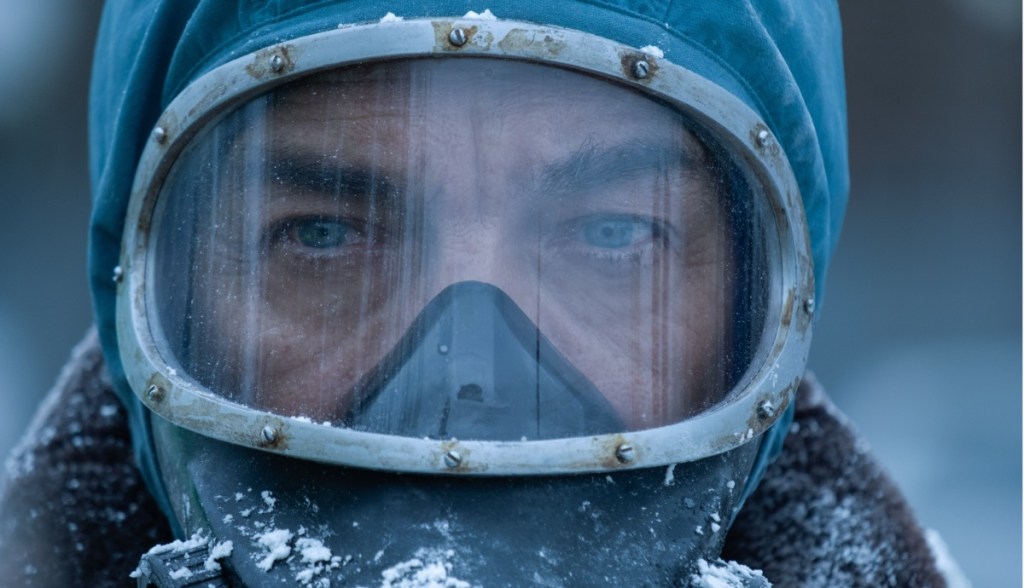The Eternaut has finally arrived on Netflix, adapting the iconic Argentinian science fiction comic after years of copyright disputes and political suppression. The streaming series closely follows the original plot, following the survivors of a deadly alien invasion in Buenos Aires as they search for answers, survive, and navigate a life of resistance. While it sounds like a cut-and-dry alien invasion story, it was viewed by many as a rebuke of dictatorships and imperialism. Eternaut creator Héctor Germán Oesterheld used the comic to denounce war and highlight the class struggles from the perspective of an everyman.
Videos by ComicBook.com
These aspects made The Eternaut‘s journey to Netflix arduous and tragic. While copyright disputes, financial issues, and questions about adapting the source material hampered its development, the true legacy lies with its author. Osterheld was in vocal opposition to Argentina’s military junta and the nation’s past dictatorships, expressing his views through his work. By 1977, he had disappeared and was presumed dead by Christmas. Spoilers follow for The Eternaut.
An Allegory or a Warning?

Reading the original Eternaut, there’s a definite sense of foreboding throughout. The serialized format aids these feelings, following the survivors of the alien invasion as they navigate a deadly snow, encounters with large bugs, gigantic beasts, and a race of overseers known as the Hands. All are an extension of “Them,” the unseen invaders and true villains of the story. These unseen masters pulling the strings from afar is a recurring theme in the series, but it carries weight for the real world, also.
Nations have labeled neighbors as the other, made ethnic groups into bogeyman, and turned citizens against each other. In The Eternaut, the massive scope of the invasion is compartmentalized through the eyes of a small group of survivors as they resist. They’re government agents hoarding secrets and unlimited supplies. The survivors aren’t superheroes either. They’re relying on their wits to survive and adapting to the world around them.
Juan Salvo is the engine moving The Eternaut‘s plot forward. He enters the tale as a time traveler narrating his experience, revealing himself as one of remaining survivors. In the Netflix series, he’s described as a “common man involved in an extraordinary situation,” which could also be used to describe Osterheld. He lived like an everyman, using his work as a tool in calling out “dictatorial regimes” and “anti-imperialist” topics.
Who is Héctor Germán Oesterheld?

The late author found success with his first iteration of The Eternaut, cutting his teeth writing adventure comics. The original series successfully ran from 1957 to 1959, with large swathes of the plot being improvised during its publication. Oesterheld and his collaborator Francisco Solano López didn’t allow the work to be bogged down by this unique way of writing though.
Osterheld’s views became more overt in his references by the late ’60s. He worked on a controversial biography of Ernesto “Che” Guevara in 1968, a year after the revolutionary’s death. This book was specifically named when journalists pressed for details on his imprisonment in 1979.
“We did away with him because he wrote the most beautiful story of Ché Guevara ever done,” journalist Alberto Ongaro said.
The author would eventually join leftist guerrilla group, the Montoneros, starting his membership along with his four daughters. In 1969, he updated The Eternaut to feature more explicit criticism and political overtones, even adjusting the setting as the fascistic Argentina. Another sequel would follow in 1976, a year before Oesterheld’s disappearance.
History Catches Up

Argentina’s military junta in the 1970s was as cruel and vicious as any the world has seen. It was also the nation’s final military dictatorship following the Falklands War. The junta’s takeover was reminiscent of other Central and South American countries, utilizing disappearances, terrorist attacks, and mass suppression to hold on to power.
Entire families ended up disappearing at the hands of the military during the period. This includes Osterheld’s daughters and their husbands, who were all shipped to a detention center around the same time as their father. They joined the reported 8,961 others who were “disappeared” by the military.
All of this can be found living inside the panels of The Eternaut. The Argentine army could be good representation of “Them,” the evil invaders pulling the strings. They use the Hands and other automatons as proxies to fight for them. This mirrors reality, where foreign powers meddle in the southern hemisphere via programs like Operation Condor, turning citizens against each other or forcing them to submit.
The politics behind The Eternaut matter because the context defines the alien invasion and Juan Salvo’s own view of it. Keeping the story in Argentina, focusing on a small group of normal people, and essentially creating a loop of unavoidable catastrophe with no happy ending. It’s a sobering take in a genre that generally sees the “good guys” win in the end and live happily ever after.
Never Give Up

Despite the overwhelming odds against him and other survivors, Juan Salvo doesn’t give up. He claims to have lived over 100 lives and he’s never succeeded in changing the future. Oesterheld never gave up either, despite his imprisonment and assumed death at the hands of the military government. According to the New Yorker, all that is known about the end of Oesterheld’s life was that he was allowed to smoke a cigarette on Christmas Eve 1977.
“The guards gave us permission to take off our hoods and smoke a cigarette. They also allowed us to talk to each other for five minutes. Then Héctor said that as he was the oldest, he wanted to shake hands with all the prisoners present, one by one. I will never forget that handshake,” Eduardo Arias said in a government report released in 1984. “Héctor Oesterheld was sixty years old when this happened. His physical condition was very bad indeed. I don’t know what happened to him.”
[RELATED – 5 Best Post-Apocalyptic TV Shows of Our Time]
According to the outlet, Oesterheld never stopped making comics. As one fellow detainee wrote, “The poor old fellow spends his days writing comic strips, which until now no one has any intention of publishing.”
The Eternaut‘s Netflix premiere comes at another tumultuous time for the entire globe. Argentina is once again faced with rising debt, while authoritarian regimes continue to pop up globally, which continue to be propped up by colonial powers.
The first season ends with the introduction of the Hands during an ominous encounter at a sports stadium. This not only leaves a cliffhanger for season two, but also calls back to how entertainment can be perverted by political oppression. Hopefully, series creator Bruno Stagnaro is following in Oesterheld’s footsteps and aims to use the series as a lens to address today’s society.
The Eternaut is currently streaming on Netflix. The original graphic novel is available in hardcover through Fantagraphics.
Have you watched The Eternaut? Does it deserve a second season or would you rather see another project find support? Let us now in the comments.








